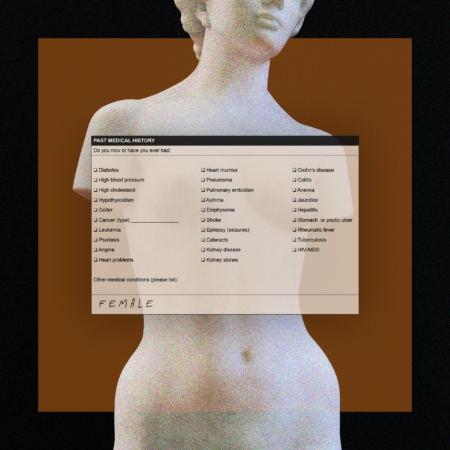Angela Lee began her journey as an angel investor with $5,000, which she invested in a movie. “I walked in with eyes fairly wide open knowing it was high risk, and while I lost the $5,000, I’m glad to have contributed to that project because it was an important movie I wanted more people to see,” says Lee, the founder of 37 Angels and a professor at Columbia Business School. “It was a fun experience and cool to be invited to the red carpet, so that’s probably why it was easy for me to keep going.”
Suddenly, people knew her as an investor and people started emailing her with deals. “I always found it intellectually stimulating, but I had no idea what I was doing for the first three or four years, so in 2012 I decided to get serious about learning about the industry,” says Lee.
For those interested in becoming an angel investor or venture capitalist, here are seven mistakes to avoid early on.
Investing in a product—rather than the product’s founder
Lee finds that a lot of newer angel investors tend to invest in products because they think to themselves, “I’d use that product and love the product, so hence I’m going to invest.”
“Obviously product is important, but what’s more important is the founding team, the business model, the market that they’re in,” says Lee.
Megan Ananian, The Helm’s Head of Membership, explains that often, new investors will focus their attention on the apps and products they use as consumers. “Consumer is a great entry point,” she says, “but if you, the investor, aren’t the target demographic, you could be missing out on opportunities by having a narrow perspective.” Instead, ask yourself if this is the founder to bring this product to market. “Understand what their experience is in building this company,” says Ananian. “The first question I ask a founder is: why you? I want to know that it is a problem they so deeply felt they had to solve that they’re going to keep doing it even after a pivot or the inevitable hardships.”
Getting too excited about the first entrepreneurs you meet
“Entrepreneurs are really exciting people to be around,” says Ashley Beckner, venture partner at Imaginable Futures. “They’re visionaries, they’re salespeople, and many of them are very inspiring and it’s part of the fun of the job to get excited and inspired with an entrepreneur in that moment.”
In order to combat this inclination towards rose-colored glasses, Beckner advises new VCs (and angel investors) to see a handful of companies and different models within that industry to be able to have perspective on where the best opportunities truly lie before making an investment.
“It’s easy to get attached,” adds Ananian. “When you’re sourcing entrepreneurs, you want to win and feel like you’ve found an amazing company. But this job is ultimately a no job—you’re mostly saying no; one out of 1,000 times you’re saying yes, so you need to have a critical heart. You have to see past all the good things and ask tough questions. That’s really hard for angel investors.”
Overpaying
Notably, there has been a 10-year bull market, and part of the reason, Lee cites, is that investors will fall in love with a start-up and invest at high (perhaps inflated) valuations.
“That’s bad for everybody,” says Lee. “It’s bad for the angel investor. It’s bad for the venture capitalists who have to come in later. It’s also bad for the founder because at some point they’re maybe going to have a down round.” A high valuation will increase expectations for future rounds of fundraising and really doesn’t give you much wiggle room for error. If the company fails to live up to that expectation, it could make it hard to raise capital in the future.
Ananian advises finding a valuation range you are comfortable with and negotiating from there. “If a company’s valuation is based on signing a specific client contract, you could agree to invest at the founder’s $10 million valuation if they are able to sign the contract within 30 to 60 days. But if they’re unable to close that contract, then you could agree to invest at a valuation range of between $8 million to $10 million.”
Being a jerk
“Building a good reputation is both the right thing to do and is also the smart thing to do,” says Lee, who points out that ultimately this is a small, tight-knit community and people remember if you try to take advantage of tough financial times or otherwise act like a jerk. It could make it less likely that a founder would want to work with you or that other investors would want to work with you on deals.
Lee adds that during stressful times, like COVID, investor’s true colors show. “I think that founders know which investors were jerks in the last nine months and which weren’t. Those investors who tried to maybe take advantage of founders who were a little desperate in March and April [of 2020] aren’t going to do well over the next decade because people will remember that and reputations get both built and destroyed quickly in this ecosystem. Hopefully, there will be a washing out of some of the more predatory investors.”
Ananian suggests that because capital is becoming a commodity, you can’t just write a check and walk away. “You have to provide some value,” she says. A good example is providing feedback to founders—even when you decline to invest in them. “Not a lot of people want to give founders critical feedback, but they really need it in order to improve. Often, founders will just get a ‘no’ from investors and they have no idea what turned the investors off. Not only is offering feedback helpful for them, but those founders will come back to you when they’ve reached a point of success that you’re now interested in—and they will also refer you to other founders, which helps you with deal flow.”
Investing too quickly
Investing in at least 10 companies is a prevailing rule of thumb for building a diverse portfolio as an angel investor. Diversification is important, critical even, but you don’t want to try and diversify your angel investments too quickly. You could put a lot of your money at risk. Plus, if you’re still learning, you might not have a well-honed detector of what’s actually a good deal.
“Please don’t go to an event and invest in 10 companies today,” says Lee, who explains that it can take three to four years to get to 10 companies. “Invest in a couple a year and invest with a long-term view in mind.”
“Diversification is critical,” says Ananian, who recommends taking the total amount of money you want to invest in a year or a quarter, and then divide that by four. “This is one of the reasons we launched The Helm Membership, it allows you to pool your resources with other investors and syndicate the risk across 10 deals instead of only one,” she explains. “It’s the same for the public markets. People will say, ‘Oh, the stock market is booming, I don’t want to put all my money in now because it’s too late.’ Well, if you dripped your money into the market every few months, then you wouldn’t have to worry about investing it all at once and it being a bad date to start. It’s called dollar-cost averaging.”
Thinking short-term
“Investing is much more akin to a marriage,” says Isabelle Hau, a partner at Imaginable Futures. “It’s a very long-term commitment. The average exit time is seven-years plus. So, for seven years you are affiliated with an organization.”
The exit is when there’s a sale of the company and the angel or VC (hopefully) gets a return on their initial investment. There are multiple exit strategies such as an IPO or an acquisition.
Hau recommends you treat it like a marital relationship where you date first and make sure you like each other. You will spend a lot of time together and there will be difficult times.
Trying to do this alone
“This is a hard thing to do, especially as a new investor,” says Lee, who recommends you find a support group, whether that’s an angel network, an accelerator, or a community, such as a membership to The Helm’s Investor Community.
Going to events and meet-ups are ways to share knowledge and grow with other people. “Our Investor Membership acts as a middle-tier; an opportunity for folks to invest in female founders on their own terms, and make investments into companies of their own choosing, at levels that they feel comfortable with—with access to a community of like-minded investors,” says Ananian. “You’re able to learn from the perspectives of everybody in the room and bounce ideas off each other, and have other people’s experiences and backgrounds lend themselves to the diligence process.”

Join The Helm's Investor Membership
A unique opportunity for novice and experienced investors alike, join us in funding the next wave of female-led companies.
Erin Lowry is the author of Broke Millennial and Broke Millennial Takes On Investing. Her third book, Broke Millennial Talks Money, is now available for pre-order. Follow Erin on Instagram at @brokemillenialblog






